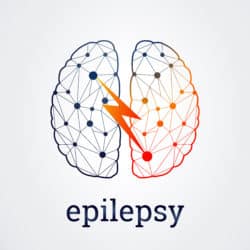EPILEPSY AND PREGNANCY, Nathan Fox, MD (Digital)

Pregnant women with epilepsy usually do well throughout the pregnancy. However, there are some concerns for both the mother and the baby that need to be monitored.
Frequency of Seizures during Pregnancy
For the majority of epileptic women, the frequency of seizures does not increase during pregnancy. Approximately 25 percent of women will show an increase in seizures, but many of these women’s seizures develop from sleep deprivation or stopping their medications during pregnancy due to a fear of how the medication may affect the developing fetus. It’s important to get adequate sleep, continue anti-seizure medications, and minimize stress or decrease other factors known to cause the patient’s seizures.
The effects of generalized seizures on the fetus during pregnancy are not well-established. If uncontrollable, they may be harmful to the fetus or mother.
Seizures rarely occur at the time of delivery (between 1 to 2 percent of cases). Otherwise, epilepsy does usually not affect labor and delivery. There is some evidence for a slight increase in the common complications of pregnancy, such as preeclampsia, bleeding, preterm birth, and placental abruption, in women with epilepsy who take antiepileptic medication, but it is unclear if this is due to the underlying condition, the medication, or simply increased surveillance and reporting of these complications in these women.
Antiepileptic Drugs and Pregnancy
Women should only consider stopping antiepileptic drugs if she has been free of seizures for at least two years, and this should only be done under the direct care of her neurologist. If medical therapy is suggested or continued, ideally a single medication should be attempted using the lowest dose that will control the seizures.
The risk of birth defects can be 6 to 8 percent, which is two to three times higher than the risk in mothers without epilepsy, but this highly dependent on the medical regimen used, with some medications having higher risk than others. The possibility of prenatal diagnosis of malformations are possible using an ultrasound, and a prenatal echocardiogram is generally advised as well. For more information regarding Seizures during Pregnancy or any other pregnancy complication, visit our blog page.
Maternal Fetal Medicine blogs are intended for educational purposes only and do not replace certified professional care. Medical conditions vary and change frequently. Please ask your doctor any questions you may have regarding your condition to receive a proper diagnosis or risk analysis. Thank you!







